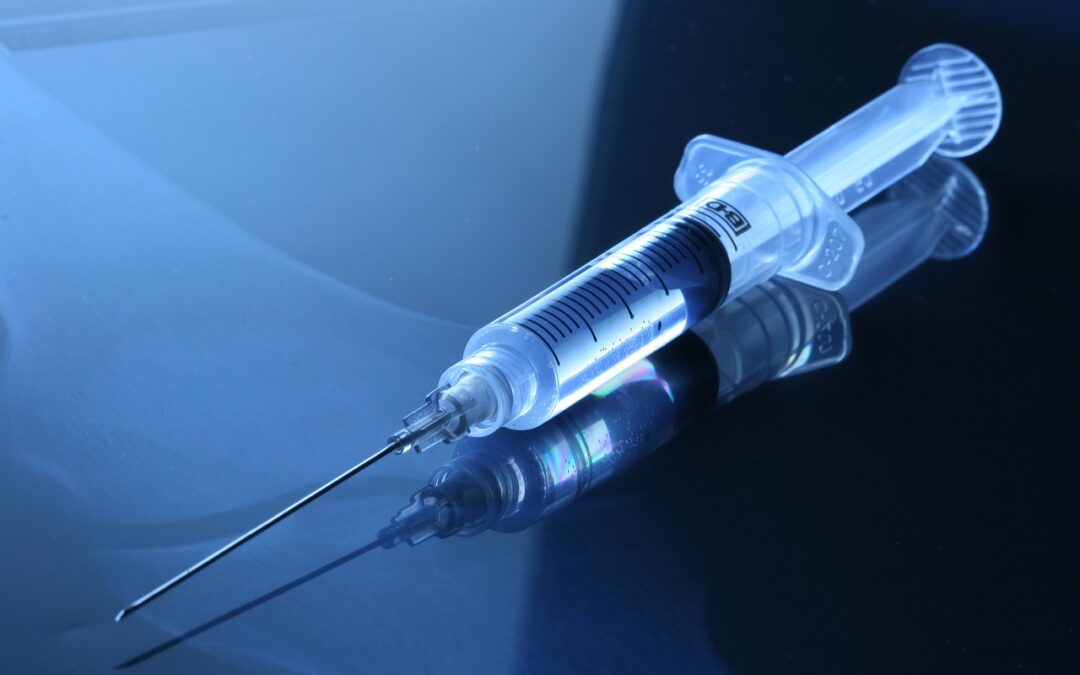A recent Phase III clinical trial for a cancer vaccine called DCVax showed that it could provide patients with extra years beyond their initial prognoses. The vaccine is used to treat glioblastoma, one of the most common, aggressive, and deadly forms of brain cancer. According to data from the trial, the vaccine could extend survival for months or even years for some patients with this form of cancer.
What Is Glioblastoma?
Glioblastoma is an aggressive form of cancer that can develop in either the brain or the spinal cord. It forms from cells known as astrocytes, which support nerve cells. Glioblastoma can be extremely difficult to treat and many patients are untreatable. Treatments are typically aimed at slowing the progression of the disease and alleviating symptoms.
Some of the most common types of treatment for glioblastoma include:
- Surgery – Neurosurgeons conduct surgery to remove as much of the glioblastoma tumor as possible. However, glioblastoma tumors combine with normal brain tissue, which makes full removal impossible. Post-surgery treatments are used to remove the remaining cancer cells.
- Radiation therapy – High-energy beams (like X-rays and protons) are used to kill cancer cells. Radiation therapy is typically used after surgery and is sometimes combined with chemotherapy. For patients who cannot cannot undergo surgery, the combination of radiation and chemotherapy may be a primary treatment.
- Chemotherapy – Thin wafers containing chemotherapy drugs are placed in the brain during surgery. These wafers slowly dissolve, which releases the drugs and kills cancer cells. A chemotherapy drug called temozolomide is often prescribed after glioblastoma surgery.
- Tumor treating fields (TTF) – TTF uses electrical fields to stop tumors from multiplying. Adhesive pads are applied to the patient’s scalp, and these pads are connected to portable devices that generate electrical fields. TTF is most commonly used with chemotherapy and is often recommended following radiation therapy.
- Targeted drug therapy – Targeted drugs are used to focus on specific abnormalities in cancer cells. The drugs attack abnormalities that allow cancer cells to grow and thrive. For glioblastoma patients, a drug called Bevacizumab is used to target the signals that glioblastoma cells send to the body that aid in the formation of new blood vessels and the delivery of blood and nutrients to cancer cells.
These standard of care (SOC) treatments have essentially been the same for almost two decades. Patients who undergo SOC treatments usually survive for only 15-17 months after their diagnosis and the tumors usually recur at about 6-8 months after diagnosis. Patients typically survive for 7-9 months after recurrence and the five-year survival from diagnosis is just 5%.
What Is DCVax?
DCVax is a fully personalized immunotherapy comprised of the patient’s own immune cells (dendritic cells) and antigens (biomarkers), which are taken from a sample of the patient’s tumor. Chemists can produce a multiple-year set of doses in one manufacturing batch, which takes about 8 days. The vaccine is stored frozen in single doses and each dose is removed from the freezer and delivered to the patient’s doctor when it is needed for their next treatment.
The vaccine is a platform technology designed to use the entire immune system to fight cancer cells. It uses activated dendritic cells because these cells have control over the full immune system and help mobilize the entire system to fight off cancer and other diseases.
DCVax is a personalized vaccine. It targets the full range of biomarkers on the patient’s tumor, rather than focusing on a single target like some cancer drugs. Scientific research has shown that tumor profiles and characteristics vary significantly among patients who have the same form of cancer.
Glioblastoma and other aggressive cancers often show especially pronounced variations between patients. This is why immunotherapy and other personalized forms of cancer treatment are currently among the most-studied by oncologists and pharmaceutical companies.
Phase 3 Clinical Trial Findings
The Phase 3 clinical trial was a global study that evaluated 331 patients with glioblastoma. According to Pro Keyoumars Ashkan, the European chief investigator of the trial, the vaccine “was shown to prolong life and interestingly so in patients traditionally considered to have poorer prognosis.” One patient survived for more than 8 years after receiving the vaccine, while another is still alive seven years after his dosage.
The researchers found that newly diagnosed patients with glioblastoma survived for 19.3 months on average after taking the vaccine, compared to 16.5 months for participants who were given a placebo. Of the participants who had recurrent glioblastoma, those who took DCVax lived an average of 13.2 months after receiving the vaccine, compared to 7.8 months for those who did not take it.
Overall, 13% of the participants who received DCVax lived for at least 5 years after their diagnosis, compared to just 5.7% of those from the control group. The researchers are encouraged by their findings and believe that the vaccine could improve outcomes for patients who don’t typically respond well to other therapies. The next step will be getting the vaccine passed for regulatory approval.

